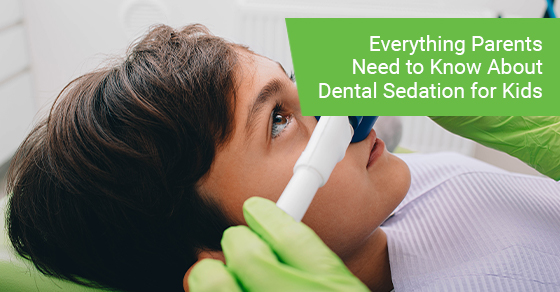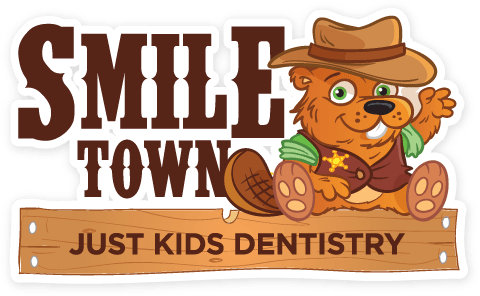Everything Parents Need to Know About Dental Sedation for Kids
- December 8th, 2022
- Childrens Dental Tips
- Andrew Adams

Dental sedation for kids is a safe and commonly performed practice in children’s dentistry and may be necessary to assist your child in their dental treatment for a number of reasons.
With that being said, it’s normal for any parent who is preparing their child for a dental procedure requiring sedation to have questions and concerns regarding sedation and anesthesia.
This article will familiarize parents with each type of sedation used by our dentist for children, in addition to how they can best prepare their child for their sedation-assisted dental appointment.
There are four main types of dental sedation used at SmileTown, with each type varying in the level of sedation they provide. These sedation options include awake dentistry, conscious sedation, deep sedation, and general anesthesia.
The Four Main Dental Sedation Options
1. Awake dentistry
Although listed under the umbrella of dental sedation options for kids, awake dentistry does not technically involve any form of sedation. Rather, awake dentistry describes techniques that work to reassure and distract, and therefore help comfort children before and during their dental procedure.
At SmileTown, our kids-only dentists have formal training in such techniques and methods, which include positive reinforcement, tell-show-do/voice control, non-verbal communication, and parental presence and/or absence.
Awake dentistry allows us to provide a much less stressful and more pleasant dental care experience for children of all age ranges without any use of actual sedatives, apart from local anesthesia (freezing) to protect from localized pain.
2. Conscious sedation
During conscious sedation, your child will still be awake and alert; however, they will feel more calm and relaxed. One of the most common ways to provide conscious sedation is through nitrous oxide, otherwise known as laughing gas. Nitrous oxide is administered through a mask placed over the child’s nose, and is very simple to provide and control.
What’s more, nitrous oxide will not present a child with any lingering side effects after they leave the dentist’s office, as the sedative is quickly eliminated from the body following the procedure’s completion.
3. Deep sedation
With deep IV sedation, your child will be fully asleep for their dental procedure. This level of sedation is generally achieved through administering incremental doses of medication intravenously, with each dose effective for around 3-5 minutes.
Performed only by dental anesthesiologists with proper training, deep sedation is most commonly used for children who are younger or who tend to be uncooperative, as well as children who experience a great degree of dental anxiety or fear.
It is also a common form of sedation for procedures that are more extensive or complex. Moreover, deep sedation allows practitioners to complete all required treatments in a single appointment.
4. General anesthesia
General anesthesia is most commonly used for more intensive dental operations or procedures that take place at hospitals. This level of sedation involves the use of an endotracheal (breathing) tube along with anesthetic vapours and other IV medications to ensure the child remains asleep or unconscious for the entirety of the procedure.
Frequently Asked Questions About Children’s Sedation at SmileTown
Most parents tend to share some of the same concerns or questions regarding sedation dentistry for kids. Below, we will address some of these most frequently asked questions:
Q: Will my child be completely safe undergoing sedation dentistry?
A: Definitely. Just like sedation dentistry for adults, sedation dentistry for kids of all ages, including infants, has been safely administered by trained anesthesiologists and doctors for years with incredibly minimal risks or side effects.
Q: In what cases will my child require sedation for their dental treatment?
A: If your child suffers from dental anxiety or finds it challenging to sit still in the dentist’s chair, then dental sedation will certainly be considered, if not necessary.
Dental sedation will generally be required if your child will be undergoing an oral surgical procedure, undergoing a treatment that is longer in duration, or if they have a prominent gag reflex.
In these cases, sedation will play a vital role in helping to prevent injury from involuntary movement and will allow your child to cope much better with their treatment while also allowing the doctor to perform the procedure with ease.
Q: Will my child need to fast the night before their dental procedure with sedation?
A: Our kids-only dentist may recommend that your child not eat the night before and the day of their dental appointment if they are receiving an oral anesthetic for their treatment or receiving sedation for a surgical procedure.
It’s essential for children undergoing sedation to not have any food in their stomachs due to a risk of aspiration or choking.
Our dentists will go over all of this with you prior to the appointment and ensure that all your questions are answered, and that you and your child feel comfortable and understand the requirements.
Q: Will sedation alter my child’s behaviour following their treatment?
A: It’s beneficial for parents to be aware that it is common and completely normal for their child to react in unconventional ways after their procedure, while they slowly come out of their sedative state. They may display signs of confusion or fear, may cry or behave sillier than normal, or may even feel sick.
Don’t fret, however; these expected kinds of reactions should subside as soon as your child’s anesthetic wears off completely.
Q: Does SmileTown source from outside dental anesthesiologists or require inpatient care?
A: No. SmileTown employs on-site doctors and staff specially trained in paediatric dentistry and paediatric sedation to perform treatment procedures, and do not travel to other dental offices, hospitals, or surgical suites to provide such care.
Q: Does SmileTown charge children’s sedation-related service fees?
A: SmileTown does not charge a facility fee, administrative fee, or pre-medication fee.
How to Ensure Your Child Feels Comfortable Leading Up to Their Dental Procedure
You can do several things to help ensure your child’s comfort before their dental treatment with sedation.
First, let them wear what they want to the appointment. Comfortable and loose-fitting clothing such as pyjamas is ideal.
Second, encourage your child to bring along an item that provides them with comfort, such as their favourite blanket or stuffed toy.
Third, make sure that all plans such as school are cancelled for the day, as the remainder of the day should be reserved for relaxation.
Last, use only positive language when referring to their treatment in the days leading up to it.
Reach Out to Our Kids-Only Dentist Today
Is your little one in need of children’s dental care with or without the use of sedation? Luckily, our kids-only dentist in Guelph and team are always welcoming new patients with no referral necessary.
To book an appointment, call SmileTown – Just Kids Dentistry at (226) 773-1663, or contact us here.

